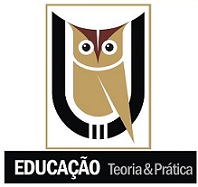THE BLACK PEOPLE IN THE TEXTBOOK OF BORGES HERMIDA
DOI:
https://doi.org/10.18675/1981-8106.vol28.n59.p602-622Keywords:
Negro, Cultura escolar, Disciplina escolar, Livro didático, Borges Hermida.Abstract
The study has as objective to investigate how black people were represented in didactic history books of between 60’s to 80’s of the twentieth century. We selected three editions focused on History of Brazil teaching by Borges Hermida: Compendium of History of Brazil, destined for High School and History of Brazil and History of Brazil 1, for Fundamental School. The textbooks research is justified by understanding them as one of the main pedagogical resources used by teachers in classroom because they are widespread in the school environment in the temporality proposed for the study. The research has bibliographical, documentary and exploratory nature. We guided this study especially using the theoretical perspective of Dominique Julia studying the concept of school culture and the theoretical perspective of André Chervel for the study of the history of school subjects. The study revealed that the History of Brazil had the function of reproducing the dominant ideology, forging a certain school culture, not offering elements for problematizations around the history of black people and their descendants in Brazil, but consolidating a naturalization idea in the process that permeated its coming as a labor force for the slavery system. The narrative formation of the Brazilian people by Borges Hermida represented in a harmonious and neutral way between white, native and black people, ending our analysis to the historiographic directives supported by theoretical principles of the traditional history. Keywords: Black people. School culture. School subject. Textbook. Borges Hermida.Published
How to Cite
Issue
Section
License
Authors who publish in this journal agree to the following terms:
a) Authors assign copyright to the journal, with the work simultaneously licensed under the Creative Commons Attribution License that allows sharing of the work with acknowledgment of authorship and publication in this journal.
b) The policy adopted by the Editorial Committee is to assign copyright only after a period of 30 months from the date of publication of the article. After this time, authors interested in publishing the same text in another work must send a letter to the Editorial Committee requesting the release of the assignment of copyright and wait for a response.
c) This journal provides public access to all its content, since this allows greater visibility and reach of published articles and reviews. For more information on this approach, visit the Public Knowledge Project, a project that developed this system to improve the academic and public quality of research, by distributing OJS as well as other software to support the public access publication system to academic sources. The names and email addresses on this website will be used exclusively for the purposes of the journal and will not be available for other purposes. This journal provides open any other party  This work is licensed under a Creative Commons License
This work is licensed under a Creative Commons License











